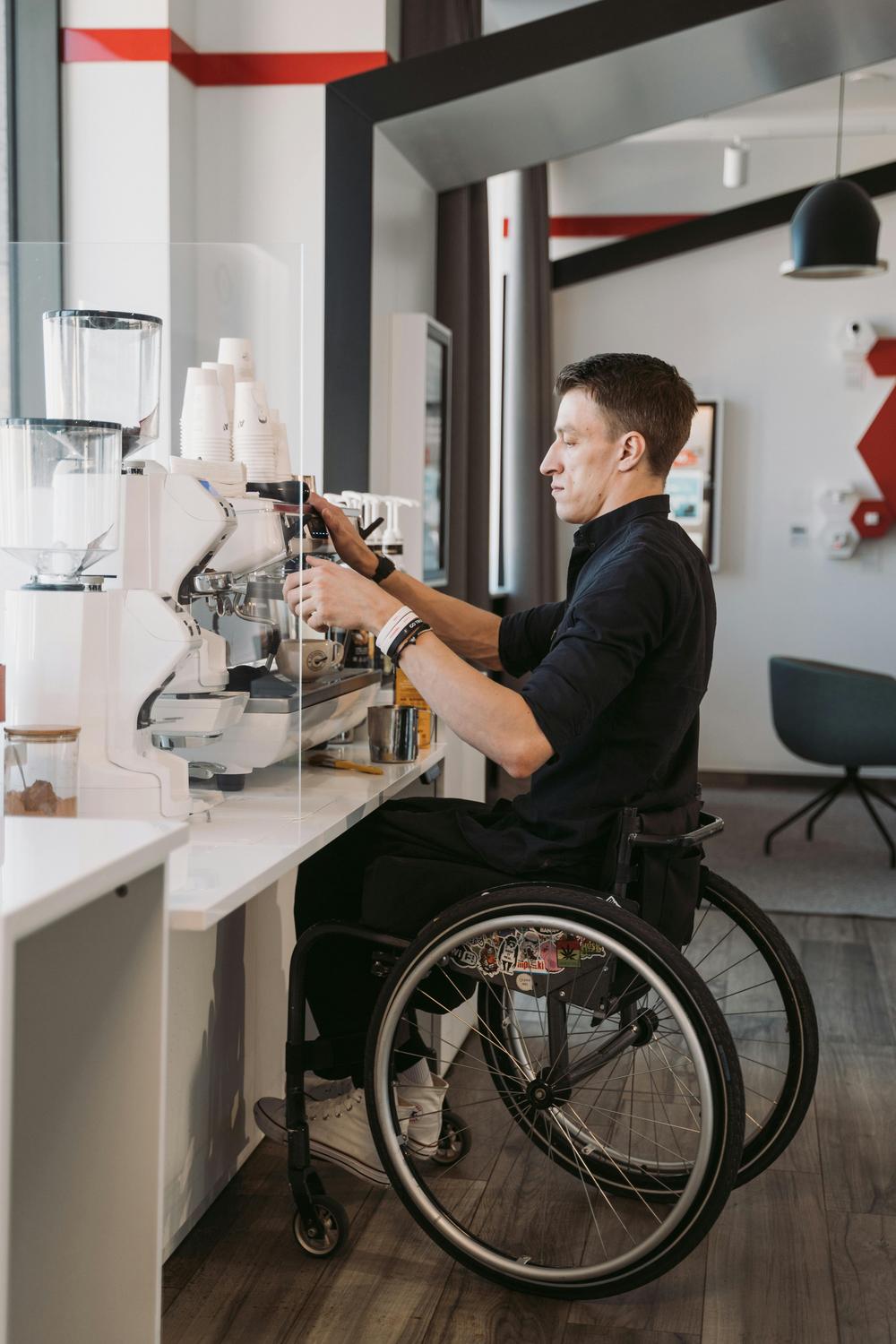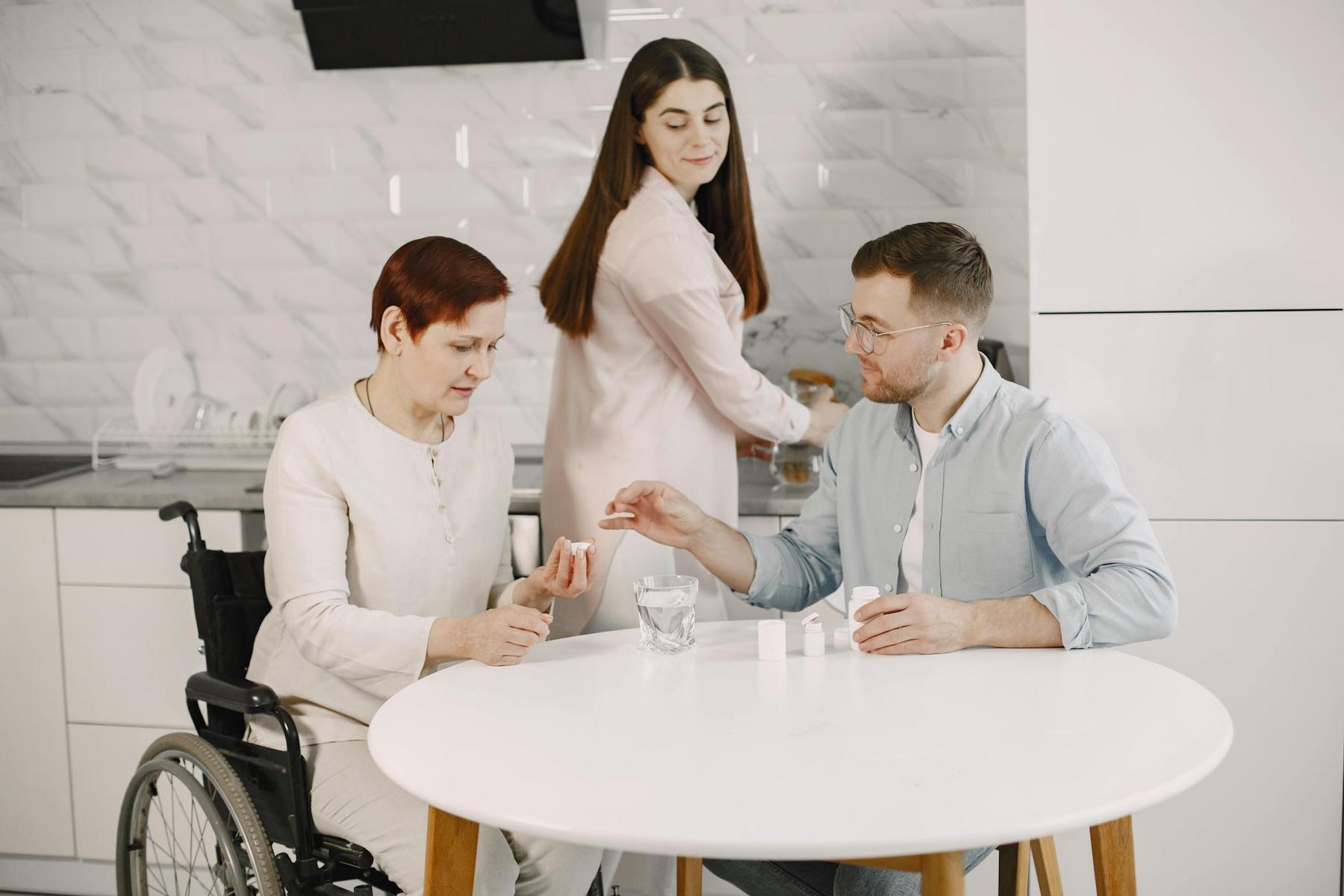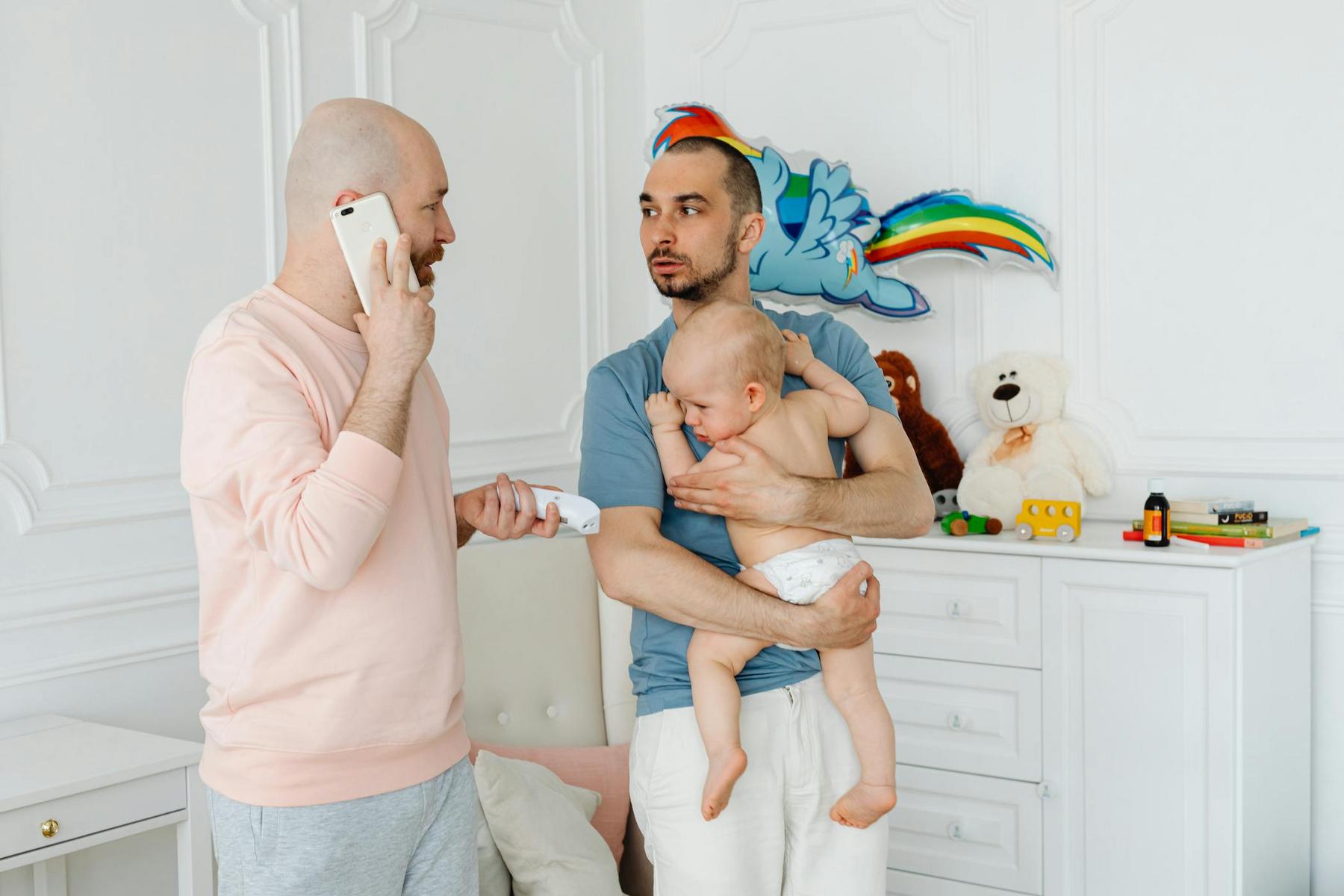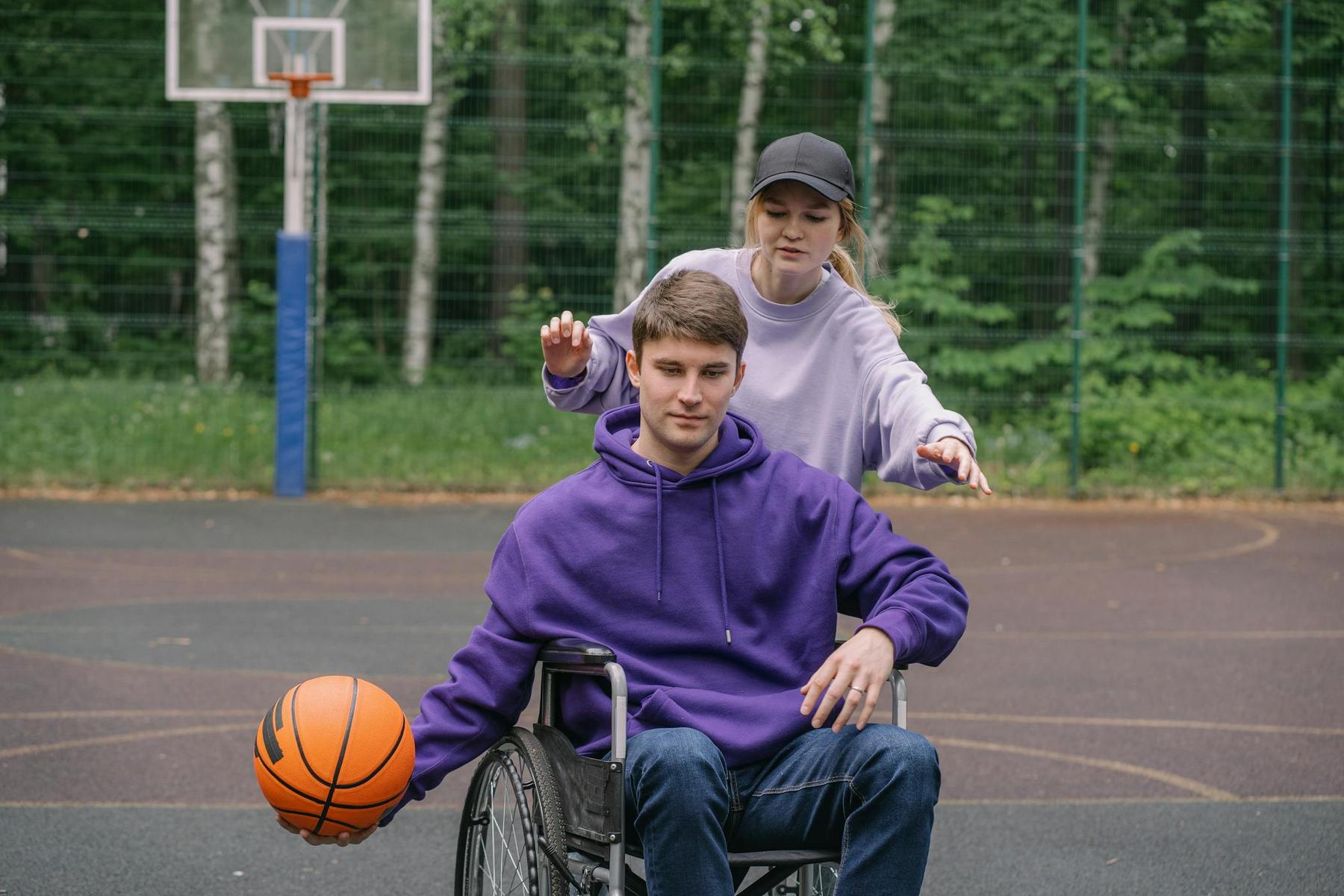Brisbane’s vibrant social landscape can feel overwhelming when you’re searching for truly inclusive spaces where everyone feels welcome, valued, and comfortable. For individuals with disabilities and their families, the simple act of enjoying a coffee with friends or attending a community event shouldn’t require extensive research or cause anxiety about accessibility barriers. The reality is that meaningful social connections are fundamental to wellbeing, yet too many people with disabilities find themselves excluded from Brisbane’s bustling cafe culture and community spaces due to physical barriers, lack of understanding, or inadequate support services.
This challenge extends beyond individual experiences to affect entire families and support networks who want to share memorable moments together in environments that accommodate everyone’s needs. The good news is that Brisbane has emerged as a leader in creating genuinely inclusive social spaces that go far beyond basic compliance requirements, offering a rich network of disability-friendly cafes and community venues where connection and participation flourish naturally.
Where Can You Find Brisbane’s Most Accessible Cafes and Dining Venues?
Brisbane’s disability-friendly cafe scene spans from purpose-built inclusive venues to thoughtfully adapted mainstream establishments that prioritise genuine accessibility alongside excellent food and service. The Maillard Project exemplifies how contemporary dining can embrace accessibility with open, spacious entryways requiring no door manipulation and generous undercover outdoor seating areas that accommodate wheelchairs comfortably. While indoor seating presents some challenges with low tables and high stools, the venue demonstrates the mixed reality of Brisbane’s evolving accessibility landscape.
Howard Smith Wharves has established itself as a premier accessible dining destination beneath the Story Bridge, featuring wide shared pathways that facilitate easy movement throughout the riverside precinct. The venues here, including Felons Brewing Co., Greca, Yoko Dining, and Ciao Papi, offer diverse culinary experiences within wheelchair-accessible environments complemented by spectacular city views. Two street-level lifts ensure that the elevated riverside location remains accessible to all visitors, while the open design allows seamless navigation between different restaurants and bars.
The South Bank precinct represents Brisbane’s most comprehensive approach to accessible dining, integrating numerous wheelchair-friendly restaurants and cafes throughout the parklands’ flat terrain and wide pathways. This area transforms dining into part of a broader recreational experience, where visitors can combine meals with riverside walks, cultural attractions, or community events within a fully accessible framework that supports extended social engagement.
Eat Street Northshore demonstrates innovative temporary dining accessibility through portable wheelchair ramps, wide pathways throughout the shipping container marketplace, and strategically positioned accessible facilities near both entrances. This popular weekend destination proves that even unique dining concepts can successfully accommodate diverse accessibility needs while maintaining their distinctive character.
Brisbane’s craft beverage scene has also embraced accessibility with venues like Green Beacon Brewing Co. in Teneriffe offering easy wheelchair access through ramps and wide navigation spaces, while Sea Legs Brewing Co. at Kangaroo Point combines accessible bathrooms and open layouts with a relaxed riverside atmosphere.
What Community Programs and Social Activities Support Disability Inclusion?
The National Disability Insurance Scheme (NDIS) has transformed community participation opportunities throughout Brisbane, enabling individuals with disabilities to access an extensive range of social activities and skill-building programs that promote independence and meaningful community connections. NDIS-funded community participation activities encompass adaptive sports programs, therapeutic arts experiences, peer support networks, and accessible tourism opportunities, creating diverse pathways for social engagement that align with individual interests and personal goals.
Righteous Community Care demonstrates comprehensive community participation approaches through group activities that combine recreational engagement with skill development and social connection. Their programs accommodate diverse capabilities through tailored sensory options, small instructor ratios, and carefully selected venues that balance convenience with full mobility access via ramps, lifts, and convenient nearby parking. This approach recognises that community participation must be both accessible and genuinely engaging.
What Ability Foundation highlights specific venues and activities that create inclusive environments promoting social interaction, skill development, and authentic community engagement. Their recommendations include Variety Livvi’s Place Playground, an inclusive play space designed for children and adults with autism as well as vision, hearing, and mobility impairments. The playground features colour and textural changes, musical sculptures with vibrations and sounds, and specialised equipment like the ‘Sway Fun’ swing specifically designed for wheelchair users.
Music therapy services through organisations like Rhythmic Integrations utilise accessible community venues for group sessions and performances, creating opportunities for individuals to develop musical skills while building social connections in inclusive environments. These programs demonstrate how therapeutic interventions can be embedded within normal community activities rather than isolated in clinical settings.
Adaptive sports programs offered through Sporting Wheelies utilise Brisbane’s accessible facilities to provide both competitive and recreational opportunities that build physical fitness, teamwork skills, and robust social networks. These programs often incorporate social components such as team meals at accessible restaurants or celebration events at inclusive venues.
| Program Type | Key Organisations | Accessibility Features | Community Benefits |
|---|---|---|---|
| Arts & Music Therapy | Rhythmic Integrations, Access Arts | Accessible venues, sensory accommodations | Creative expression, social connection |
| Adaptive Sports | Sporting Wheelies | Wheelchair-accessible facilities, specialised equipment | Physical fitness, teamwork, competition |
| Life Skills Training | Come and Cook | Adapted kitchens, accessible learning spaces | Independent living, practical skills |
| Social Enterprise | Community Cafe 11, Boronia Brew | Employment training, inclusive workplaces | Skills development, economic participation |
How Do Brisbane’s Cultural Venues Support Disability Access and Engagement?
Brisbane’s cultural institutions have established themselves as accessibility leaders, creating environments where individuals with disabilities can engage with arts, history, and educational programming on equal terms with all visitors. Queensland Museum Kurilpa exemplifies comprehensive accessibility planning with wheelchair accessibility featuring wide corridors and generous manoeuvring space, free wheelchair loans from Level 2’s Cloakroom, and accessible bathroom facilities across multiple levels including specialised features like fold-down change tables.
The museum’s lifts service all floors with braille buttons and audible announcements, while staff receive ongoing disability awareness training to ensure welcoming interactions with all visitors. This attention to both physical infrastructure and human service elements demonstrates how cultural venues can create genuinely inclusive experiences.
Museum of Brisbane integrates accessibility into core operations through sensory maps for visitors, touch trolleys available upon request for select exhibitions, and comprehensive accessibility information covering lift dimensions and toilet facilities. The museum’s acceptance of Companion Cards for paid programs and free admission policy for most exhibitions removes financial barriers that might otherwise prevent participation in cultural activities.
Queensland Art Gallery & Gallery of Modern Art (QAGOMA) showcases how major cultural institutions can anchor accessible cultural districts, offering spacious galleries with elevators, accessible restrooms, and wheelchair hire services. The venue’s South Bank Cultural Precinct location creates opportunities for extended cultural experiences, as visitors can combine gallery visits with dining at accessible restaurants, walks through accessible parklands, or performances at nearby inclusive venues.
Brisbane’s performing arts venues demonstrate sophisticated accessibility approaches that extend beyond basic physical accommodations to include accessible parking, lifts, specialised seating arrangements, hearing loops, visual accommodations, and trained staff support that enhance rather than limit artistic experiences for all audience members.
What Transportation and Mobility Support Makes Brisbane Venues Accessible?
Brisbane’s comprehensive transportation network serves as the crucial foundation enabling access to disability-friendly cafes and social spaces throughout the metropolitan area, with integrated systems supporting both independent travel and assisted mobility. The city’s public transportation system includes accessible bus, train, and ferry services connecting major dining and entertainment districts, while Translink’s Journey planner provides specialised routing information helping individuals with disabilities navigate the system effectively.
The Brisbane City Hall Mobility Centre represents a unique urban mobility support resource, providing free loans of wheelchairs, wheeled walkers, and single prams for use within the CBD, South Bank Parklands, and South Bank Cultural Precinct. Operating seven days weekly with extended hours, this service enables visitors and residents to access mobility aids when needed for exploring dining venues, attending cultural events, or participating in community activities.
Parking accessibility throughout Brisbane’s dining and entertainment districts includes designated disabled parking bays strategically located near popular venues and attractions. South Bank’s underground car park features several disabled parking bays conveniently positioned near car park lifts at both northern and southern ends of level B1, providing easy access to parklands and their numerous dining options.
The integration of accessible transportation with thoughtful venue design ensures mobility considerations extend throughout entire visitor experiences. Howard Smith Wharves provides wide shared pathways accommodating wheelchairs, mobility scooters, and walking aids while offering spectacular river views and easy access to multiple dining establishments. The precinct’s street access lifts ensure the elevated riverside location remains accessible to all visitors.
Brisbane’s Story Bridge Adventure Climb represents innovation in accessible tourism, featuring custom-engineered stair-climber wheelchairs enabling individuals with mobility impairments to ascend the city’s iconic structure. This initiative transforms physical accessibility into a catalyst for personal achievement and memorable experiences, demonstrating that with proper design and support, even challenging activities can become inclusive.
How Do Social Enterprises Combine Dining with Skills Development?
Brisbane’s disability-friendly cafe sector includes several social enterprises that combine accessible dining with employment and skills development opportunities for individuals with disabilities, creating models that address both social inclusion and workforce participation challenges. Boronia Brew at Eagle Farm represents Help.org.au’s approach to social enterprise cafes in the Brisbane metropolitan area, providing people with disability a safe and supported environment where they can work towards their NDIS goals while serving excellent coffee alongside catering, take-away, and dine-in options.
These venues demonstrate how social enterprises can operate successfully within competitive markets while maintaining their core social mission of providing meaningful employment pathways. The skills development extends beyond technical hospitality abilities to include communication, time management, problem-solving, and customer service capabilities that transfer effectively to other employment opportunities.
Community Cafe 11 in Boonah, while outside Brisbane proper, illustrates how social enterprise dining creates profound individual transformations, where participants with conditions including cerebral palsy, autism, Down syndrome, intellectual disabilities, and complex mental health issues develop not only barista, cookery, and customer service skills but also confidence and social connections. The cafe’s integration with local community groups demonstrates how social enterprises can become economic anchors in their communities.
The therapeutic dimensions of these programs often see participants progress from avoiding crowds to confidently serving customers, illustrating the profound impact accessible employment opportunities can have on individual development and community integration. Support staff describe remarkable transformations where individuals overcome significant barriers to social interaction and public engagement through supported work experiences in welcoming environments.
Elkahsa Healthcare Services Australia demonstrates sophisticated NDIS service provider approaches to facilitating community participation, offering comprehensive assessments of individual needs and safety principles ensuring participants maximise benefits from community outings. Their approach includes consistent care staff assignments, adherence to NDIS quality and safeguarding frameworks, and personalised activity planning that might include visits to libraries, theatres, cafes, or participation in hobby classes.
Creating Lasting Community Connections Through Inclusive Spaces
Brisbane’s comprehensive network of disability-friendly cafes and social spaces represents far more than mere compliance with accessibility standards—it embodies a fundamental transformation in how communities can embrace genuine inclusion while maintaining commercial viability and cultural richness. The city’s success demonstrates that meaningful accessibility requires integrated planning combining physical infrastructure, supportive policies, innovative design solutions, and community-driven programming that addresses the full spectrum of social participation needs.
The integration of NDIS funding with accessible venues has created sustainable pathways for community participation that align individual goals with broader social inclusion objectives, enabling people with disabilities to access diverse dining, entertainment, and cultural experiences alongside their families and support networks. Brisbane’s approach recognises that genuine inclusion demands attention to transportation, venue design, service delivery, and community attitudes, resulting in comprehensive solutions addressing potential barriers at every level of social participation.
Innovation projects like Access Vertigo at Brisbane Powerhouse, which created Australia’s first accessible vertical dining experience through collaboration with disability advocates and occupational therapists, demonstrate that with proper planning and community collaboration, even unique and challenging experiences can be made inclusive without compromising their essential character. These initiatives serve as models for other cities while continuously expanding the boundaries of what accessibility can achieve in urban environments.
The economic impact extends throughout Brisbane’s hospitality sectors as businesses discover that accessibility investments generate positive returns through increased patronage, community loyalty, and expanded market reach. The disability community represents significant purchasing power, and businesses successfully serving this market often develop strong customer loyalty and positive word-of-mouth marketing extending beyond the immediate disability community to include family members, friends, and colleagues.
Looking ahead, Brisbane’s continued evolution in disability-friendly hospitality and social spaces will likely incorporate emerging technologies, expanded community partnerships, and increasingly sophisticated universal design approaches that anticipate diverse needs from the earliest planning stages. The city’s experience provides compelling evidence that creating truly inclusive communities requires sustained commitment, creative problem-solving, and ongoing collaboration between disability advocates, service providers, businesses, and government agencies while building stronger, more vibrant communities benefiting everyone.
What makes a cafe or social space truly disability-friendly in Brisbane?
Disability-friendly cafes and social spaces in Brisbane feature comprehensive accessibility that extends beyond basic compliance to include wide doorways and pathways, accessible bathrooms with appropriate fixtures, level or ramped access, adequate space for wheelchair manoeuvring, accessible parking nearby, clear signage and navigation aids, staff trained in disability awareness, acceptance of Companion Cards, flexible seating arrangements, and sensory considerations for various disability types.
How can NDIS participants access Brisbane’s disability-friendly venues and activities?
NDIS participants can access Brisbane’s accessible venues through Core Supports funding for Social and Community Participation, which covers activities at cafes, cultural venues, recreational facilities, and community programs. Support coordination services help participants navigate venue options, trial different experiences, and ensure choices align with plan goals. Many venues specifically accommodate NDIS participants and their support workers through trained staff, flexible services, and acceptance of Companion Card benefits.
Which Brisbane areas offer the highest concentration of accessible cafes and social spaces?
South Bank offers the highest concentration of accessible venues, featuring numerous wheelchair-friendly restaurants and cafes within flat parklands connected by wide pathways and accessible public facilities. Howard Smith Wharves provides multiple accessible dining options with riverside views, while the CBD offers accessible cultural venues like Queensland Museum and City Hall facilities. Fortitude Valley and surrounding inner-city areas also feature growing numbers of accessible breweries, cafes, and entertainment venues.
How do Brisbane’s accessible venues support families and carers?
Brisbane’s disability-friendly venues support families and carers through measures such as Companion Card acceptance providing free entry or services to carers, accessible family facilities including change tables and family bathrooms, flexible booking arrangements accommodating support needs, staff training in working with families and support workers, accessible parking for family vehicles, and venue designs that accommodate multiple wheelchairs or mobility aids for group visits.
What innovative accessibility features can visitors expect at Brisbane’s most inclusive venues?
Innovative accessibility features in Brisbane include custom lightweight wheelchairs for elevated dining experiences (as seen in Access Vertigo), custom stair-climber wheelchairs for tourism (as implemented at Story Bridge), advanced audio-visual systems and smartphone navigation apps, interactive displays and touch trolleys at museums, specialized playground equipment at inclusive play areas, automated coffee equipment at social enterprise cafes, virtual venue tours for familiarization, and emergency accessibility protocols ensuring safety for all visitors.



